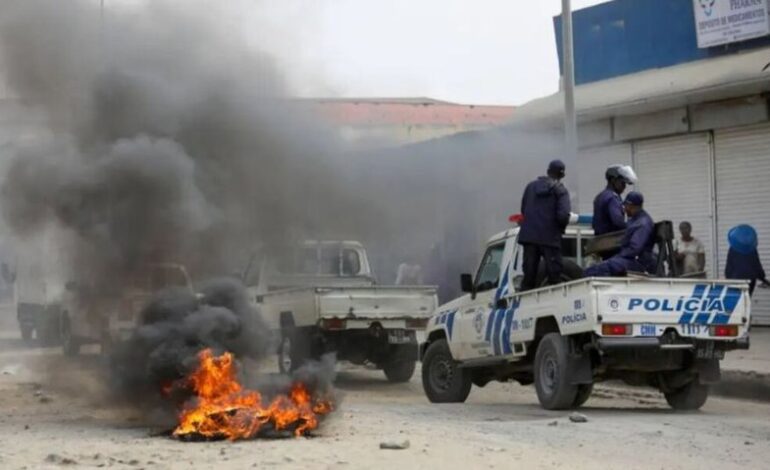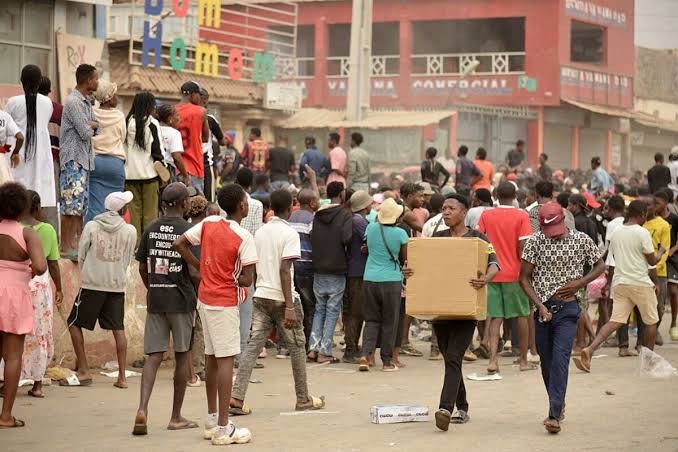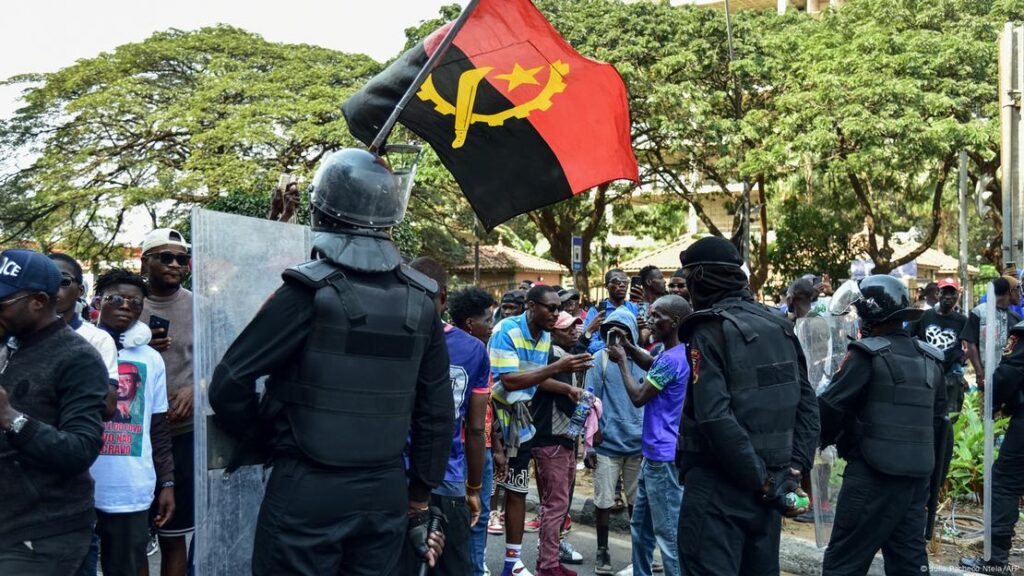
Faith Nyasuguta
Angola is reeling from a wave of deadly protests that have swept across the country following the government’s decision to sharply increase diesel prices. As of Wednesday, authorities confirmed that at least 22 people had been killed in violent clashes, up from just four the day before – marking a dramatic and rapid escalation.
The unrest erupted on Monday when minibus taxi unions, a key part of Angola’s public transport network, began a three-day strike in response to the government’s move to slash diesel subsidies and raise prices by about 30%. The price hike, part of a broader economic reform plan, is intended to reduce public spending and stabilize the country’s finances.
However, it immediately led to a surge in transport fares, with some areas reporting increases of up to 50%, sparking outrage among commuters and low-income citizens already struggling with inflation and economic hardship.

What started as a localized strike in the capital, Luanda, quickly escalated into nationwide unrest. Violent demonstrations broke out across at least six provinces, leading to widespread looting, vandalism, and clashes with security forces. According to an official government statement, 197 people were injured, and 1,214 were arrested. Additionally, 66 shops and 25 vehicles were damaged, and several supermarkets and warehouses were looted.
President Joao Lourenco’s cabinet held an emergency meeting on Wednesday to respond to the crisis. Authorities have since deployed police and military forces to restore order, although tensions remain high. The government insists that the subsidy cuts are essential for long-term economic health. In 2023, fuel subsidies consumed nearly 4% of Angola’s GDP, according to the finance minister. This figure is expected to fall to 1.8% in 2025 as part of a planned phase-out backed by the International Monetary Fund (IMF).
While international investors have praised the reforms as a sign of Angola’s commitment to fiscal discipline, the social fallout has been severe. Many ordinary Angolans depend on affordable fuel not just for transportation but also to run small businesses and basic household needs. Critics argue that the government’s timing and approach to subsidy cuts have worsened public suffering without offering viable alternatives or safety nets.

This is not the first time Angola has faced unrest over subsidy cuts. Similar protests erupted in 2023 when fuel prices were first adjusted under IMF-backed reforms, leading to several deaths. Human rights groups have also raised concerns over excessive use of force by police during protests, including reports of tear gas, rubber bullets, and harsh crackdowns on demonstrators.
As anger simmers, the government is under growing pressure to find a balance between economic reform and social stability. Opposition parties such as UNITA and the Bloco Democrático have called for urgent dialogue and restraint, warning that the unrest could spiral further without meaningful engagement and relief measures for affected communities.
The crisis showcases a central challenge for Angola’s leadership: how to push through painful but necessary reforms in a way that doesn’t ignite public fury or deepen existing inequalities. For now, the country remains on edge.
RELATED:








